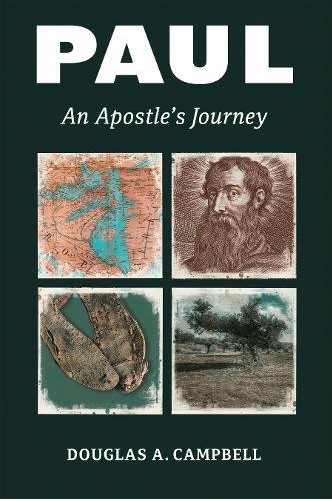 J.R. Daniel Kirk‘s new book, Jesus Have I Loved, But Paul? A Narrative Approach to the Problem of Pauline Christianity (BakerAcademic, 2011) may very well be a touchstone for the next generation of Christians who can’t accept the traditional Paul (on historical grounds) and yet who want to explore what Paul looks like if we begin with a more accurate understanding of Jesus, of Judaism, of the Bible’s Story … and of Paul himself.
J.R. Daniel Kirk‘s new book, Jesus Have I Loved, But Paul? A Narrative Approach to the Problem of Pauline Christianity (BakerAcademic, 2011) may very well be a touchstone for the next generation of Christians who can’t accept the traditional Paul (on historical grounds) and yet who want to explore what Paul looks like if we begin with a more accurate understanding of Jesus, of Judaism, of the Bible’s Story … and of Paul himself.
What role does Paul play in your faith and in your theology? Have you struggled with him?
We begin with this: lots of Christians today are struggling with Paul. (For some that is just incomprehensible, while for many this speaks volumes.) Some are bothered that Paul doesn’t talk kingdom enough; others that Paul doesn’t even talk about Jesus’ teachings; others that Jesus was so activist and justice-oriented and Paul, well, those aren’t his gigs. Some find him “distasteful, offensive, oppressive, exclusive, confusing, arrogant, or just plain wrong” (3). Others wonder why he gets so much attention and why his theology is the lens through which the whole Bible is read. Others think Paul was not so important until Augustine and after him not until Luther and Calvin. Kirk gives us more: Paul the angry Reformed theologian, the promoter of internalized Christians, the Neoplatonist, the exclusivist, the oppressor, the judge, the chauvinist, and the imposer of order.
Daniel Kirk thinks Paul’s been given a misreading. He thinks we need to get to the narrative shape of Paul’s thinking, to the Story at work in Paul’s letters.
But Daniel also thinks that many (post?) evangelicals no longer operate with the assumptions of the previous generation, including concern with inerrancy as the foundation. “For this generation (in which I include myself), a network of relationships and experiences fills the primary role of confirmation of our beliefs that earlier evangelicals would have located primarily in ‘objective’ truths such as the inerrancy of Scripture or, to take another example, proofs of the resurrection” (7).
Kirks strategy is to show that Jesus and Paul inherited the same story of God at work in Israel, and that Mark’s Story of Jesus and Paul’s Story of Jesus are very similar — that is, Jesus and Paul are at one on the Story. This leads, he argues, to a revolutionary reinterpretation of Paul (for some). That one Story is this:
The God of Israel acted decisively in the person of Jesus to restore God’s rule and reconcile the whole world to himself (9).
That Story is about God (and this God is known through the Story God is in, not through such terms as immutable, etc). This is a Story about Israel as God’s chosen way of blessing the world. No Story in the Bible without Israel. Israel has a future: new king, pour out Spirit, live in Land, free from overlords, the temple.
Big one: The Gospels are Israel’s future. The future tense becomes present tense. This Story comes to its “pointed realization” in the crucifixion and resurrection. Paul’s churches have been “scripted into Israel’s story” so that the whole Gentile theme in Paul is about realizing the promise to Abraham to be a blessing to the nations. They get to be part of Israel’s Story.
The center of this Story, of course, is Jesus. He is the King and brings the kingdom. The Gospels tell the Story of God ruling through Jesus, and the oddity of this Story is that God reigns through Jesus’ death and resurrection. He becomes King, as it were, via those acts. Resurrection is about new creation and about ruling creation.
Mark’s crucified King — first half about king, second half about how he rules as king — and Paul’s christology are very similar: it is about Jesus ruling as the one who was crucified and raised.











